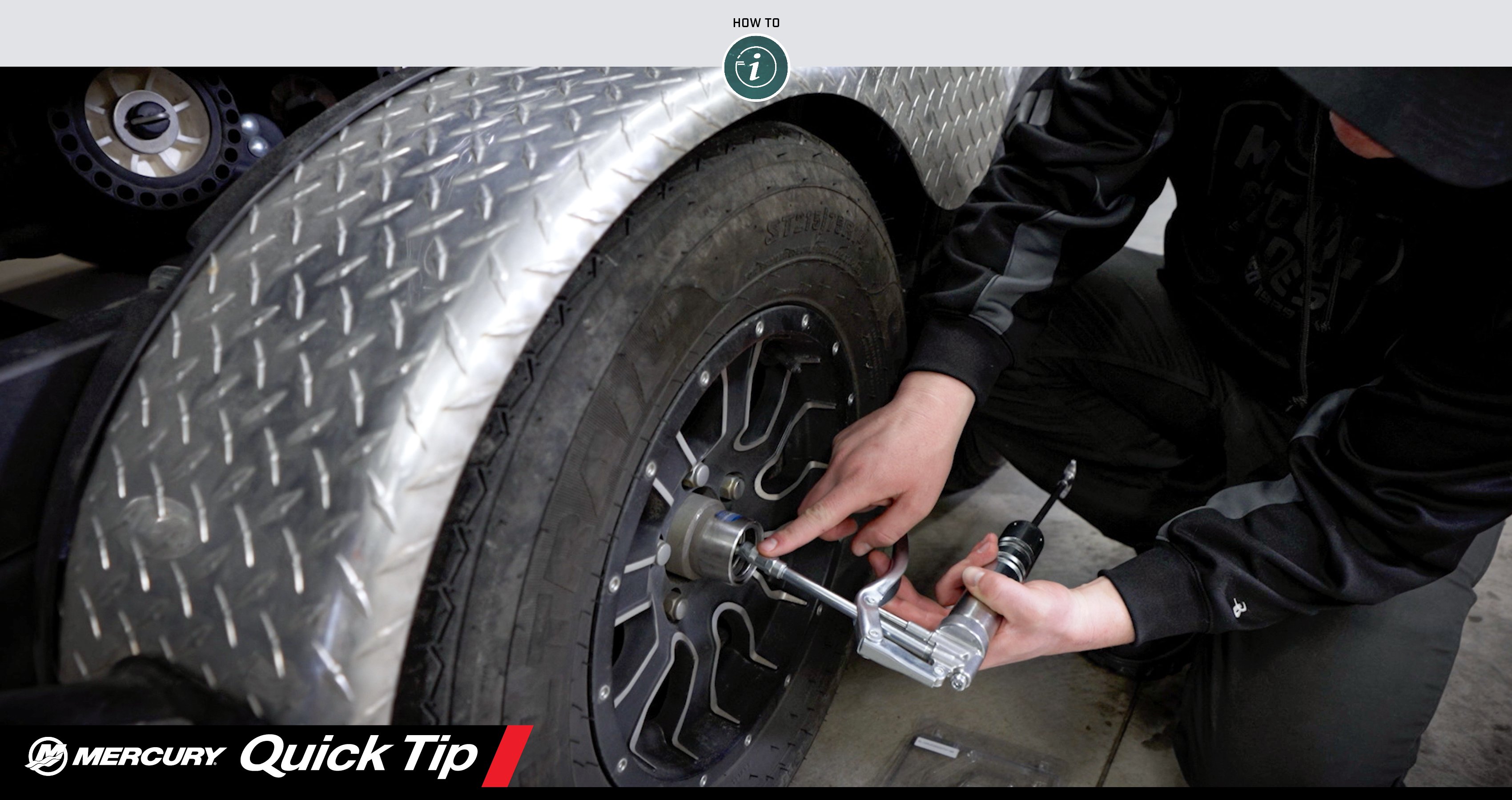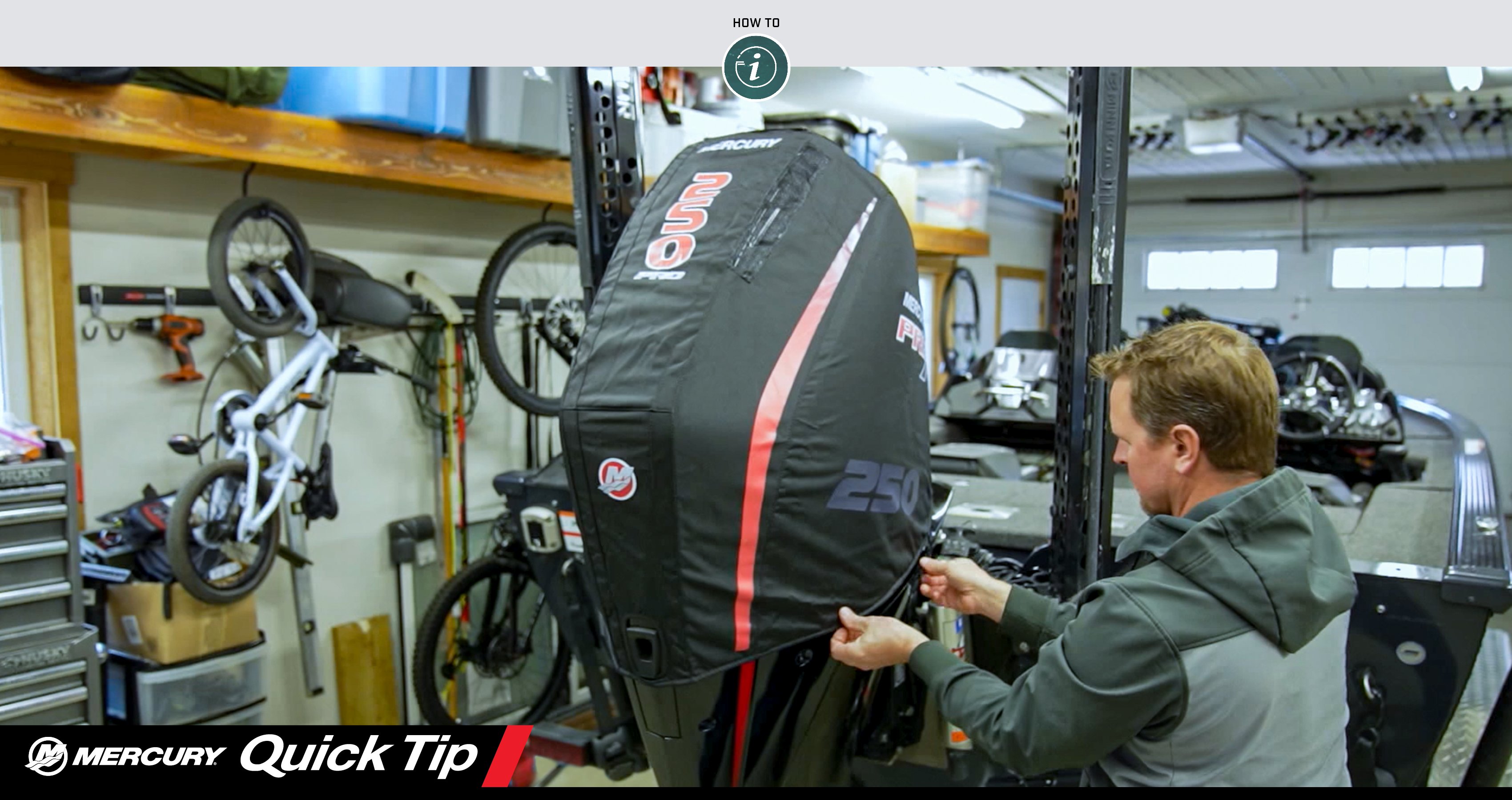Unless you keep your boat in a marina, a good day on the water starts with trailering to the ramp. That’s why it’s important you stay on top of trailer maintenance.
Among the trailer features that should be on your regular checklist are the wheel bearings – more specifically, the bearing grease. These bearings are located inside the hubs on the trailer axle and allow the wheels to spin freely as you travel down the road. While traveling, the spinning force generates friction, and the friction generates heat. To keep the bearings from overheating, they need to be lubricated, which is done by filling the inner part of the hubs – the part containing the bearings – with grease.
Keeping the bearings lubed and topped off with fresh grease can help ensure you get to and from the ramp safely and without headaches.
Bearing Protectors
Lubricating your bearings is important on any trailer, yet on a boat trailer, there’s the added challenge of regularly submerging the hubs and wheels in water when launching the boat. When the trailer is submerged, the hot hubs and bearings cool immediately. This creates a vacuum that could draw water in through the bearing seals.
To prevent this issue, many boat trailers are equipped with bearing protectors such as the Bearing Buddy®, one of the most popular brands on the market. Essentially a cylinder that is installed in the outer part of the hub, a Bearing Buddy has an internal spring that keeps constant pressure on the grease in the hub. The pressure helps prevent water from being pulled in past the seal.
Another big benefit of bearing protectors is that maintenance is minimal. Typically, you don’t need to clean out and repack the grease for several years, though you’ll want to check the manufacturer’s instructions to make sure you repack them at the appropriate frequency. You do, however, need to check the grease level and top it off if needed.
This process is simple, as shown in the video below by our friends at Wired2Fish. Just be sure to use a marine-appropriate grease, such as Mercury 2-4-C Marine Grease or Mercury High Performance Extreme Grease. Each is a high-quality grease that won’t break down in the presence of water.
How to Check and Top Off Grease
1. Remove the bearing protector cap.
2. Check the grease level by pressing on the edge of the spring-loaded piston. If you can move or rock the piston, the hub has enough grease. Don’t add anymore. If the piston doesn’t move, you need to add more grease.
3. Mount a hand-pump grease gun to the grease fitting, often called a grease zerk, in the center of the piston. Pump in grease until you see the piston start to move out then continue adding grease until the piston rocks approximately 1/8 inch when you press on the edge.
4. Though not required, you can also jack up the trailer so you can spin the tire freely to help distribute the grease before towing.
5. Wipe up any extra grease before replacing the cap on the bearing protector.
Care for Your Bearings – A Mercury Dealer Can Help
Not every trailer is equipped with spring-loaded bearing protectors. Your trailer might have sealed grease hubs, oil bath hubs or some other variety. Some are designed to be essentially maintenance free throughout the season, but you should still always check to make sure you have the appropriate amount of lubricant, there are no leaks and that your hubs are not excessively hot after towing.
Above all, always follow the maintenance instructions and service schedule outlined by the manufacturer. A trailer shop or a Mercury Authorized Dealer can offer advice or service if you’re not comfortable handling trailer maintenance yourself.
Most importantly, make caring for your trailer a priority because it’s vital for keeping you and your boat rolling trip after trip, season after season.
All trademarks are the property of their respective owners




